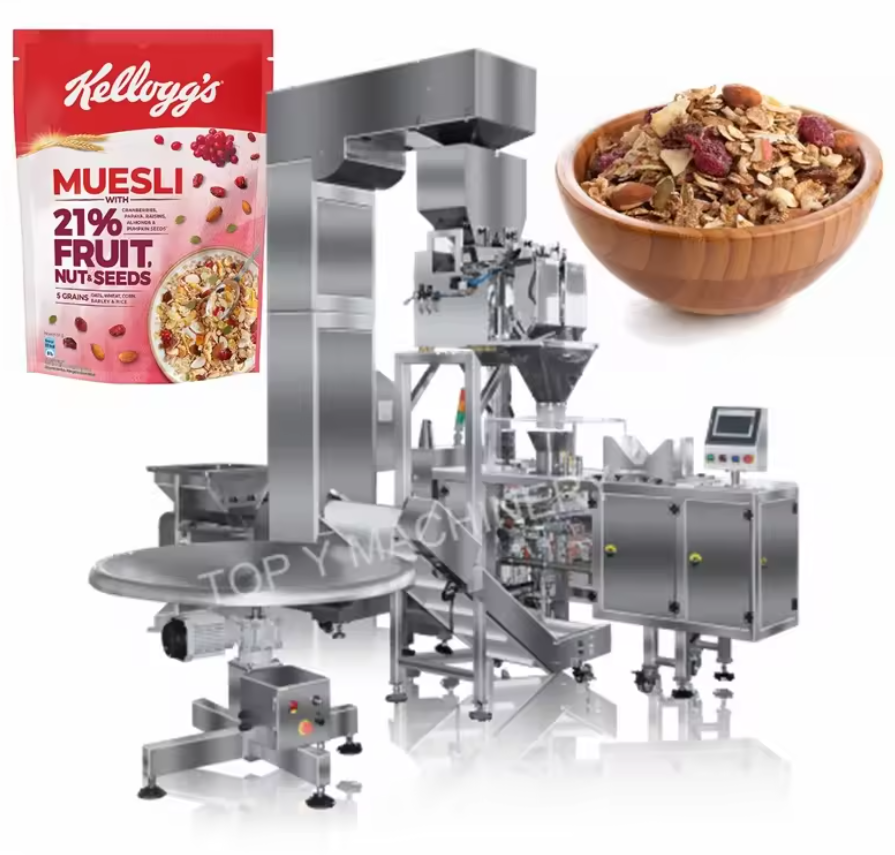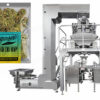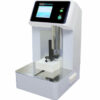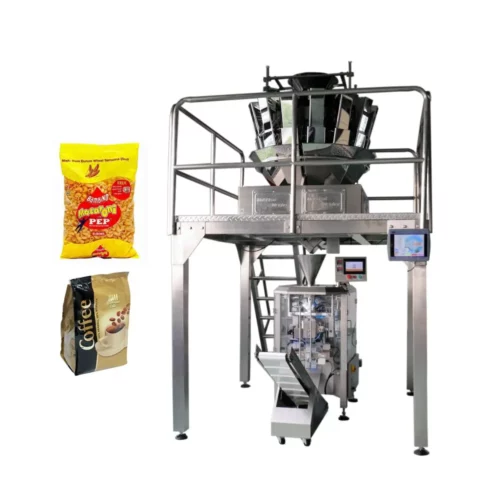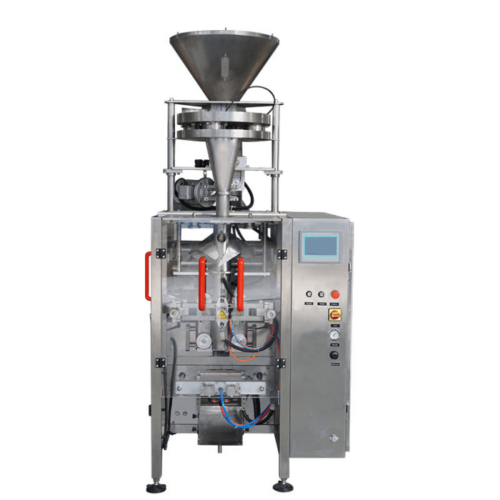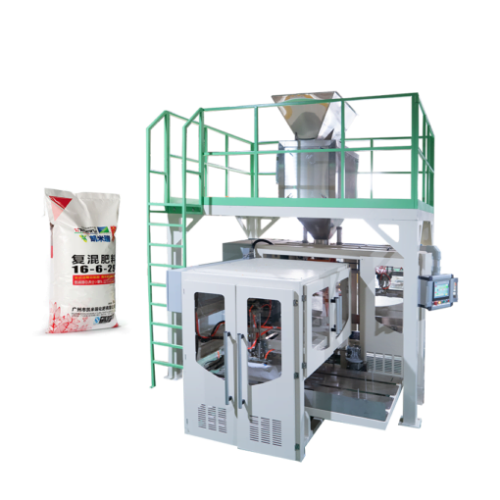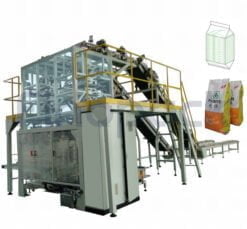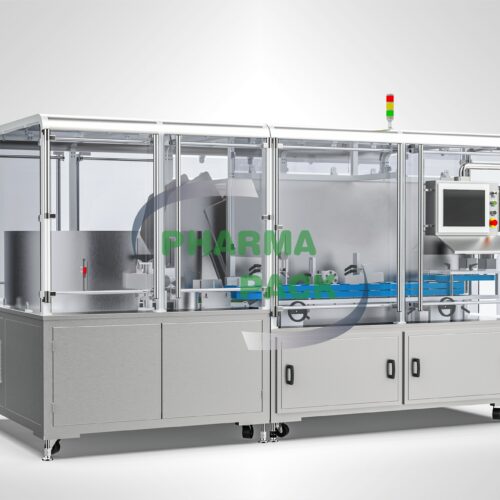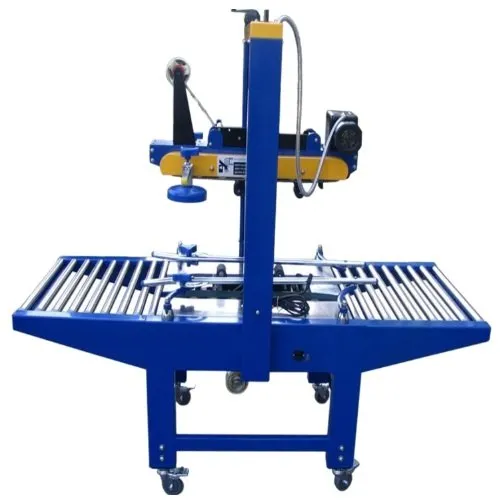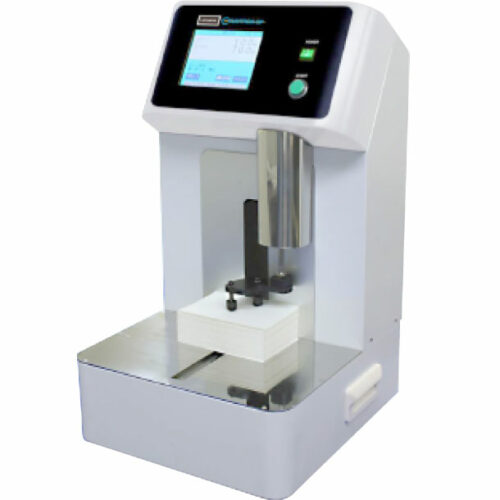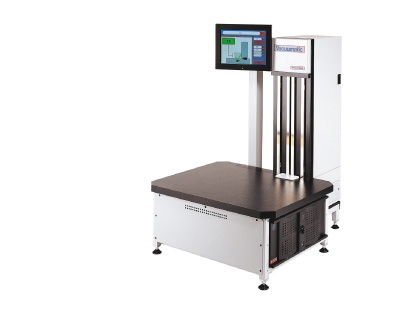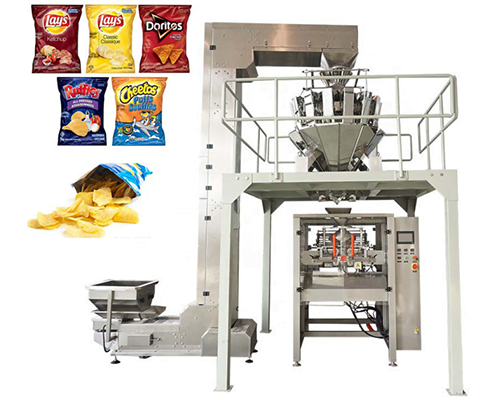List Technical Parameters of "specialized packaging machines"
Specialized packaging machines are integral to various industries, offering tailored solutions for packaging needs. Below are the key technical parameters to consider:
1. Speed and Throughput:
– Cycle Time: Time taken to complete one packaging cycle.
– Packaging Speed: Number of packages per minute/hour.
2. Capacity:
– Volume Capacity: Maximum volume a machine can handle.
– Weight Capacity: Maximum load the machine can process.
3. Dimensions:
– Footprint: Physical space the machine occupies.
– Package Size Range: Minimum and maximum dimensions of packages it can handle.
4. Material Compatibility:
– Types of Packaging Material: Compatibility with plastic, glass, metal, or paper.
– Thickness: Tolerance for material thickness.
5. Automation Level:
– Manual, Semi-automatic, or Fully Automatic: Degree of human intervention required.
– Integration Capability: Compatibility with existing systems and line integration.
6. Sealing and Closing Methods:
– Heat Sealing: Uses heat to bond materials.
– Ultrasonic Sealing: Uses ultrasonic waves for sealing.
– Mechanical Sealing: Uses physical force or adhesives.
7. Power and Energy Consumption:
– Electrical Requirements: Voltage and frequency.
– Energy Efficiency: Power consumption rate per cycle or hour.
8. Control Systems:
– User Interface: Type of control panel, e.g., touchscreen, PLC-based.
– Programmability: Customization options for different packaging requirements.
9. Accuracy and Precision:
– Dimensional Accuracy: Precision in cut, seal, and placement.
– Weighing Accuracy: Precision in measuring product weight.
10. Environmental Conditions:
– Operating Temperature: Suitable working temperature range.
– Humidity Tolerance: Ability to operate in different humidity levels.
11. Maintenance and Durability:
– Service Intervals: Recommended periods between maintenance checks.
– Durability: Material and build quality affecting machine lifespan.
12. Compliance and Safety:
– Regulatory Compliance: Adherence to industry standards.
– Safety Features: Emergency stops, guards, and sensors.
By focusing on these parameters, you can select a specialized packaging machine that suits your operational needs, enhancing efficiency and reliability.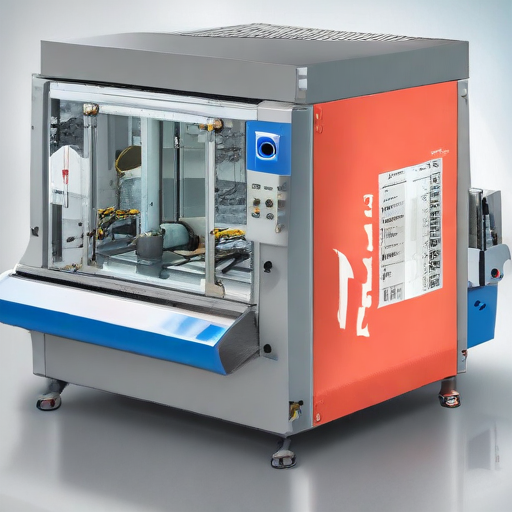
List Product features of "specialized packaging machines"
Specialized packaging machines offer a wide array of features designed to meet diverse industry needs efficiently. Here are some key features often found in these machines:
1. Customization:
– Variable Speed Control: Adjust speed settings for different product types and volumes.
– Adjustable Packaging Sizes: Accommodate a range of product dimensions.
– Multi-Format Capability: Handle different packaging formats such as bags, boxes, and bottles.
2. Automation:
– Automated Feeding Systems: Ensure continuous product supply for packaging.
– Automated Labeling: Facilitate precise application of labels.
– Integrated Printing Systems: Print date codes, batch numbers, and other vital information directly on the package.
3. Precision:
– High-Accuracy Weighing: Ensure consistent product quantities.
– Robotic Arms: Provide precise placement and orientation of products within packaging.
4. Efficiency:
– High-Speed Operation: Increase production throughput.
– Energy Efficiency: Reduce power consumption, benefiting both costs and environmental impact.
– Minimal Downtime: Quick-change components and easy access for maintenance.
5. Quality Control:
– Inline Inspection Systems: Inspect packages for defects and ensure seal integrity.
– Reject Systems: Automatically remove defective items from the production line.
6. Versatility:
– Compatibility with Diverse Materials: Handle various packaging materials such as plastic, cardboard, and foil.
– Specialized Modules: Add functionalities such as vacuum sealing, gas flushing, or temperature control.
7. User-Friendly Interface:
– Touchscreen Controls: Simplify operation with intuitive controls.
– Programmable Settings: Store and recall settings for various product runs.
8. Safety Features:
– Guarding and Interlocks: Prevent operator injuries.
– Emergency Stop Mechanisms: Ensure immediate halting of operations in emergencies.
9. Compliance:
– Hygienic Design: Meet stringent sanitation standards in food and pharmaceutical industries.
– Regulatory Compliance: Adhere to relevant industry standards and regulations.
These features collectively enable specialized packaging machines to deliver high-quality, efficient, and adaptable solutions for various packaging needs.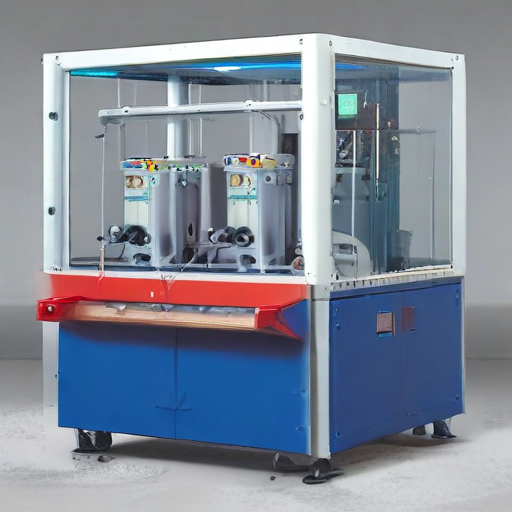
List Application of "specialized packaging machines"
Specialized packaging machines are integral across various industries due to their ability to enhance efficiency, ensure product safety, and meet regulatory standards. Here are some key applications:
1. Food and Beverage Industry: These machines are used for packaging perishable items in vacuum-sealed, modified atmosphere, and aseptic packaging to extend shelf life. Beverage filling machines, can sealers, and labeling machines ensure hygiene and compliance with health standards.
2. Pharmaceutical Industry: Automated blister pack machines, strip packaging machines, and bottle filling systems ensure precise dosage, tamper-evidence, and protection from contamination. Serialization and anti-counterfeiting features meet stringent regulatory requirements.
3. Cosmetics and Personal Care: Specialized machines handle lotions, creams, shampoos, and other products, ensuring consistency, proper closure, and aesthetic packaging. They enhance product appeal with advanced labeling and cartoning systems.
4. Electronics: Anti-static and vacuum packaging machines protect sensitive electronic components from static charges and environmental factors. Automated systems ensure precision and avoid manual handling errors.
5. Automotive Parts: Packaging machines for automotive parts utilize robust materials and methods to safeguard against physical damage and corrosion. Large, heavy parts benefit from specialized wrapping and crating solutions.
6. Chemical Industry: Machines designed for hazardous and reactive chemicals ensure safe handling, accurate dosing, and compliance with safety regulations. Leak-proof packaging is crucial for transportation and storage.
7. E-commerce and Retail: Automated packaging systems enhance order fulfillment efficiency by quickly packing various products. Customized solutions like automated bagging, boxing, and bubble wrapping address diverse shipping needs.
8. Medical Devices: Sterile packaging machines ensure medical tools are contamination-free. Seal integrity, traceability, and tamper evidence are critical for surgical instruments and diagnostic devices.
9. Agricultural Products: Machines package seeds, fertilizers, and pesticides with precision to maintain quality and comply with regulatory standards. They offer solutions like heat sealing and bulk bagging.
10. Durables and Textiles: Apparel, home goods, and textiles benefit from specialized folding, bagging, and labeling machines, promoting organized and appealing presentations for retail.
Specialized packaging machines streamline operations, improve product safety and appeal, and meet industry-specific needs, ensuring quality and compliance.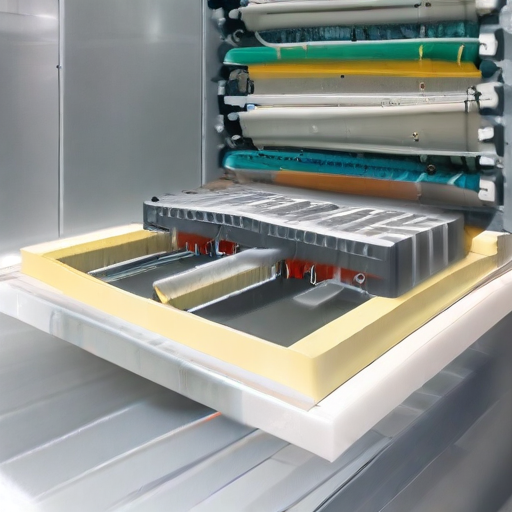
List Various Types of "specialized packaging machines"
Specialized packaging machines are tailored to handle specific packaging needs across various industries. Here’s a list of different types:
1. Flow Wrappers: These are used to wrap items in a continuous flow, ideal for candy, baked goods, and other small products.
2. Vacuum Sealers: Remove air from packaging to preserve perishable food products. Commonly used in food processing and retail.
3. Blister Packaging Machines: Seal products in pre-formed plastic cavities, often used for pharmaceuticals, toys, and electronics.
4. Shrink Wrap Machines: Enclose products in a shrink film and then apply heat to create a tight seal, ideal for bundling items together or protecting single items.
5. Cartoning Machines: Erect, fill, and close cartons for products like pharmaceuticals, food, and confectionery.
6. Bagging Machines: Automatically fill and seal bags with products, used in industries from food to hardware.
7. Stick Pack Machines: Create narrow, tube-like packages, often used for single servings of products like sugar, coffee, or medication.
8. Pallet Wrapping Machines: Secure large items and bulk goods on pallets using stretch film. Widely used in logistics and warehousing.
9. Form-Fill-Seal Machines: Form packages, fill them with product, and seal them, often used for snacks, liquids, and granular items.
10. Labeling Machines: Apply labels to products or packages, critical for branding, information, and compliance purposes in almost every industry.
11. Heat Sealers: Use heat to seal material, typically plastic, ensuring air-tight and tamper-evident packaging. Used for food, medical, and consumer goods.
12. Tube Filling and Sealing Machines: Fill and seal tubes used for creams, gels, and pastes, common in pharmaceuticals and cosmetics.
These specialized machines ensure efficiency and consistency while meeting industry-specific packaging needs.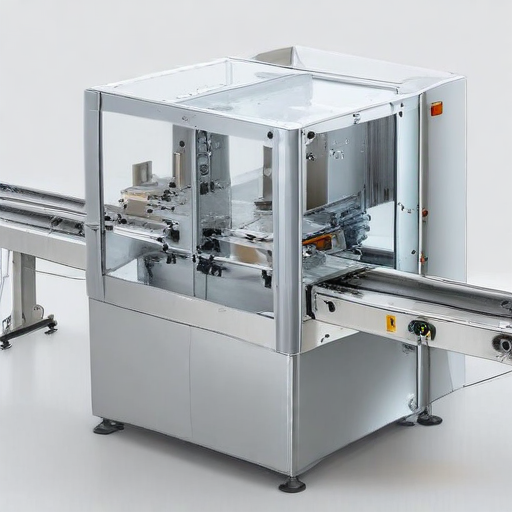
Custom Manufacturing Options for specialized packaging machines
Custom manufacturing of specialized packaging machines offers tailored solutions to meet distinct industry needs. These machines can be customized based on various parameters, including product type, packaging style, and automation level, ensuring optimal performance and efficiency.
1. Design Flexibility: Custom machines can be designed to handle specific product dimensions, shapes, and materials, covering a range of items from fragile goods to bulky products.
2. Material Handling: Custom options include various material handling systems like conveyors, robotic arms, and feeding mechanisms to ensure smooth transitions and minimal human intervention.
3. Automation Integration: Advanced automation features such as Programmable Logic Controllers (PLC), Human-Machine Interfaces (HMI), and sensors can be incorporated for real-time monitoring, quality control, and data logging.
4. Speed and Efficiency: Machines can be tailored for different production speeds, from high-speed production lines to slower, precision-focused operations.
5. Packaging Styles: Custom machines can support multiple packaging styles including tubular, vacuum, shrink-wrap, blister packs, and eco-friendly options like recyclable or biodegradable materials.
6. Regulatory Compliance: Ensuring machines meet industry standards such as FDA, ISO, or GMP for sectors like food, pharmaceuticals, and electronics can be part of the customization process.
7. Space Constraints: Compact or modular designs can be developed to fit space-constrained environments, allowing for seamless integration into existing production lines.
8. Energy Efficiency: Energy-saving features such as variable speed drives and energy-efficient motors can be included to reduce operational costs.
9. Maintenance and Upgradability: Design for ease of maintenance and future scalability is crucial for long-term investment returns. Custom solutions can include modular components for easy replacement and upgrades.
Custom manufacturing allows businesses to invest in packaging machinery that perfectly aligns with their operational requirements, ensuring productivity, cost-effectiveness, and adaptability to market changes.
List Quality Control and The Manufacturing Process of "specialized packaging machines"
Quality Control and The Manufacturing Process of Specialized Packaging Machines
#### Manufacturing Process:
1. Design Phase:
– Specifications: Detailed technical specifications to meet unique customer needs.
– Prototyping: Initial models using CAD software.
– Validation: Prototype testing and modification.
2. Material Selection:
- High-quality metals (steel, aluminum) and electronic components for durability.
– Compliance: Ensure materials meet industry standards (e.g., FDA for food packaging).
3. Fabrication:
– CNC Machining: Precision cutting and shaping of components.
– Welding and Assembly: Joining parts using advanced welding techniques, sub-assemblies built.
4. Component Integration:
– Electronics: Integration of control systems, sensors, and wiring.
– Hydraulic/Pneumatic Systems: Installation for movement and control.
5. Software Installation:
– Programming: Customized software to control machine operations.
– Calibration: Ensure accurate performance, test software integration.
6. Testing and Validation:
– Functional Testing: Simulate real-world operations to ensure functionality.
– Stress Testing: Evaluate machine performance under extreme conditions.
– Compliance Testing: Ensure machine meets regulatory standards and specifications.
#### Quality Control:
1. Incoming Material Inspection:
- Verify material quality upon receipt.
- Use of X-ray fluorescence (XRF) and Coordinate Measuring Machines (CMMs).
2. In-Process Inspection:
- Regular checks during machining and assembly.
- Use of precision measurement tools (calipers, micrometers).
3. Final Inspection:
- Comprehensive quality checks on assembled machines.
- Electrical testing for wiring and control systems integrity.
4. Performance Testing:
- Simulate real-use conditions.
- Verify speed, accuracy, and consistency.
5. Documentation and Traceability:
- Maintain detailed records of inspections and tests.
- Serial number tracking for each machine.
6. Continuous Improvement:
- Collect feedback from clients.
- Implement modifications and upgrades to improve future designs.
By following rigorous manufacturing and quality control processes, specialized packaging machines are produced to meet high standards of performance, reliability, and regulatory compliance.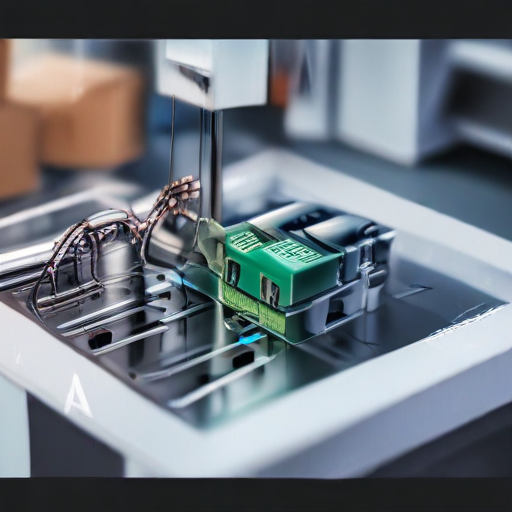
How to use "specialized packaging machines"
Specialized packaging machines are essential for efficient and consistent packaging in various industries. Here’s a step-by-step guide to using them:
1. Select the Appropriate Machine: Choose the machine that suits your product type—vacuum sealers for perishable items, blister packing for pharmaceuticals, or flow wrappers for snacks.
2. Setup and Calibration:
– Initial Setup: Ensure the machine is placed on a stable surface.
– Calibration: Follow the manufacturer’s instructions to calibrate the machine according to the product dimensions and packaging material.
3. Load Materials:
– Feed the Packaging Material: Load the roll of plastic, foil, or paper into the designated holder. Ensure it’s correctly aligned to prevent jams.
– Product Placement: Place the product on the conveyor or in the designated tray, depending on the machine type.
4. Configure Settings:
– Temperature and Speed: Set the sealing temperature and conveyor speed. Refer to the product specifications to avoid damage.
– Program Settings: For automated machines, input the desired package size, weight, and batch number.
5. Run a Test Cycle:
- Run a few test cycles to check if the packaging is consistent and secure.
- Inspect for any misalignments, leaks, or seal integrity issues.
6. Continuous Operation:
– Start the Production Run: Once tests are satisfactory, start the full production run.
– Monitor: Regularly check the machine for malfunctions and product quality.
7. Maintenance:
– Routine Cleaning: Keep the machine clean to prevent contamination and breakdowns.
– Regular Servicing: Follow the maintenance schedule recommended by the manufacturer.
By adhering to these steps, you ensure efficient operation and high-quality packaging results. Remember, proper training for operators can significantly enhance productivity and minimize errors.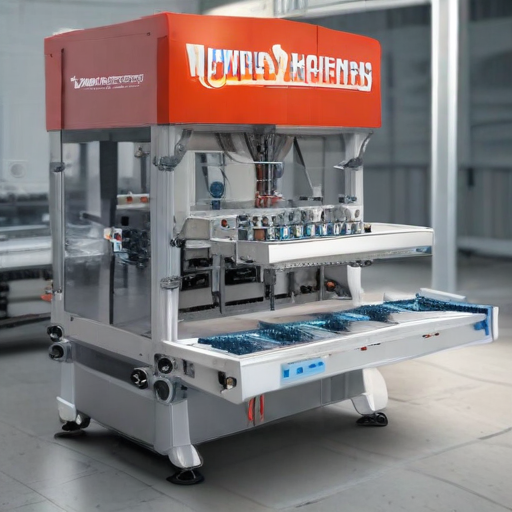
List Properties and Terms of "specialized packaging machines"
Properties and Terms of Specialized Packaging Machines
1. Customization: Designed to meet specific industry requirements, such as pharmaceutical, food, or cosmetics packaging.
2. Automation: Integrates automated processes to enhance efficiency, reduce labor costs, and ensure consistent packaging quality.
3. Versatility: Capable of handling various types of packaging materials and formats, including bottles, cartons, pouches, and blister packs.
4. Precision: Delivers accurate and consistent packaging, essential for products with strict regulatory standards like pharmaceuticals.
5. Speed: Optimized to enhance production rates, some machines offer high-speed capabilities to meet large-scale manufacturing demands.
6. Durability: Constructed with robust materials to withstand continuous operation and harsh environments, ensuring long-term reliability.
7. Safety: Equipped with advanced safety features to protect operators and maintain product integrity.
8. Compliance: Adheres to industry-specific regulations and standards, such as FDA, GMP, or ISO certifications.
9. Integration: Easily integrates with other production line equipment, such as labeling machines, conveyors, and quality control systems.
10. Flexibility: Can be quickly adapted to different products and sizes, often using modular designs for easy reconfiguration.
11. Efficiency: Incorporates energy-saving technologies and minimizes waste, contributing to a more sustainable production environment.
Common Terms:
– HMI (Human-Machine Interface): The user interface dashboard that connects an operator to the machine.
– PLC (Programmable Logic Controller): A digital computer used for automation of electromechanical processes.
– Servo Motor: Offers precise control of angular or linear position, velocity, and acceleration.
– Blister Packaging: A method of packaging products in a pre-formed plastic cavity, often sealed with a paperboard backing.
– Flow Wrapping: A high-speed packaging process where products are wrapped in a continuous film and sealed.
– Thermoforming: The process of heating and forming plastic sheets to create packaging items like clamshells or trays.
– Cartoning: Automates the packing of products into cartons for ease of distribution and sale.
– Filling Machines: Specialized for accurately filling containers with liquids, powders, or granules.
Understanding these properties and terms can help in selecting the right specialized packaging machine to meet specific operational needs.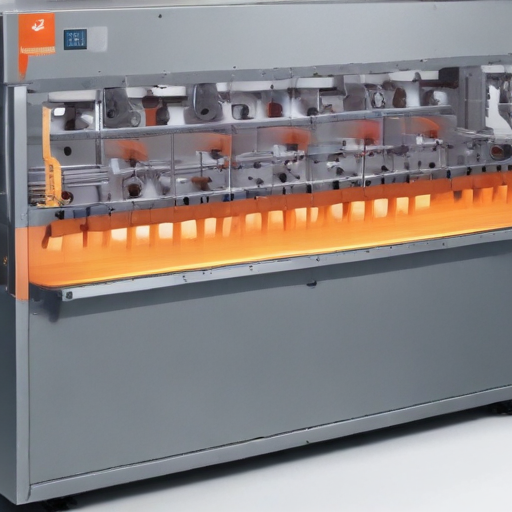
List The Evolution history of "specialized packaging machines"
The evolution of specialized packaging machines mirrors the dynamic advancements in industrial automation and consumer demand for efficiency, safety, and variety.
Early 20th Century:
Initial advancements in packaging were driven by the need for better food preservation and transport. Early machines focused on basic functions like filling, sealing, and labeling. These were primarily manual or semi-automatic, with machines like the crown corking machine for sealing beverage bottles.
1940s-1950s:
The post-World War II era marked the introduction of fully automated machines. Innovations in electronics and material science brought about sealer machines that could work continuously on production lines. This period saw the inception of the form-fill-seal (FFS) machine, which streamlined the entire packaging process.
1960s-1970s:
During this time, the integration of computer controls began transforming packaging operations. Machines like the automated blister packager became prevalent in pharmaceuticals, significantly improving precision and speed. The emergence of vacuum packaging also revolutionized food storage and safety.
1980s-1990s:
The focus shifted towards versatility and adaptability. Machines capable of handling multiple packaging types and sizes were developed. Advanced control systems, including Programmable Logic Controllers (PLCs), improved the efficiency and flexibility of packaging lines. The introduction of robotics began to further automate and refine the packaging processes.
2000s-Present:
Modern specialized packaging machines emphasize smart technology and sustainability. Innovations like IoT and AI-enhanced systems enable predictive maintenance and real-time monitoring. Machines are designed to reduce material usage, energy consumption, and waste. The integration with Industry 4.0 principles enhances connectivity and data-driven operations, leading to more efficient and personalized packaging solutions.
Throughout its history, the evolution of specialized packaging machines has been a testament to technological progression and the growing complexity of consumer needs, continuously pushing the boundaries of automation and efficiency.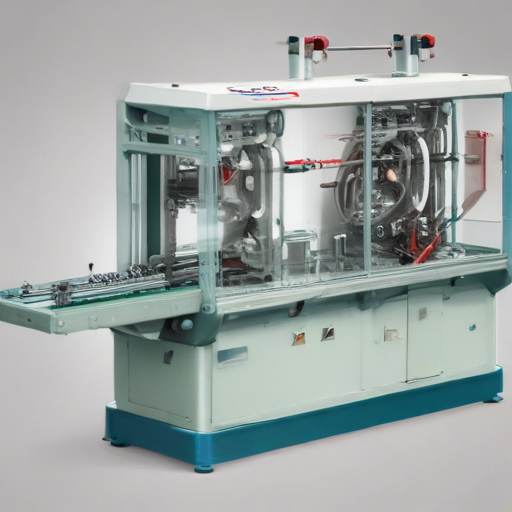
How to Select a Reliable specialized packaging machines
Selecting a reliable specialized packaging machine requires careful consideration to ensure it meets your specific needs. Here are key factors to guide your decision:
1. Determine Your Requirements:
- Identify the type of product being packaged (liquids, solids, fragile items, etc.).
- Consider the desired packaging format (bottles, pouches, boxes, etc.).
- Estimate your production volume to determine machine capacity needs.
2. Quality and Reliability:
- Choose a machine from a reputable manufacturer with positive reviews and a solid track record.
- Evaluate the build quality and durability by checking materials used and construction standards.
- Ensure the machine meets industry standards and certifications.
3. Customization and Flexibility:
- Look for machines that offer customization options to fit your specific product and packaging requirements.
- Ensure the machine can handle different sizes and types of packaging if your product range is diverse.
4. Ease of Use and Maintenance:
- Select a machine with a user-friendly interface and straightforward operating procedures.
- Consider the availability of technical support and maintenance services.
- Check for easily accessible parts for quick repairs and maintenance.
5. Cost and Return on Investment:
- Compare the cost of the machine with its features, capacity, and potential benefits.
- Calculate the expected return on investment, factoring in productivity gains and potential cost savings.
6. References and Case Studies:
- Request references from existing users to gauge their satisfaction and experiences.
- Review case studies highlighting successful use of the machine for similar products.
By thoroughly assessing these factors, you can select a specialized packaging machine that is reliable, efficient, and suited to your production needs.
List "specialized packaging machines" FAQ
Specialized Packaging Machines FAQ
-
What are specialized packaging machines?
Specialized packaging machines are custom-designed or adapted equipment used for specific packaging needs that standard machines cannot accommodate. They often handle unique packaging formats, materials, or functions. -
What types of packaging machines are considered specialized?
Examples include blister packaging machines, vacuum packaging machines, shrink wrapping machines, thermoformers, and custom labelers. They may also include machines designed for specific industries, such as pharmaceuticals or food. -
Why would a company need a specialized packaging machine?
Companies may need these machines for product-specific requirements, to improve efficiency, comply with industry regulations, enhance product presentation, or manage complex packaging formats that standard machines can’t handle. -
How are specialized packaging machines different from standard machines?
Specialized machines are tailored to handle unique tasks, often incorporating custom designs or features. They may offer enhanced precision, speed, or the ability to work with unconventional materials and shapes. -
Can specialized packaging machines be customized?
Yes, customization is a core benefit. Manufacturers often work with companies to design machines that meet specific operational needs, dimensions, speed, and material handling requirements. -
What industries benefit most from specialized packaging machines?
Industries such as pharmaceuticals, food and beverage, electronics, cosmetics, and medical devices frequently use specialized packaging machines to meet stringent standards and diverse packaging needs. -
What factors should be considered when selecting a specialized packaging machine?
Consider production volume, packaging material, product dimensions, industry regulations, ease of operation and maintenance, machine footprint, and future scalability. -
Are there additional costs associated with specialized packaging machines?
Specialized machines can involve higher initial investment due to customization and complexity. However, they offer long-term cost savings through improved efficiency, reduced waste, and better compliance. -
How can maintenance and support be managed for these machines?
Manufacturers typically offer maintenance contracts and training. Spare parts availability, ease of troubleshooting, and reliable customer support are crucial for minimizing downtime. -
Are there examples of integration with existing systems?
Specialized machines often integrate seamlessly with existing production lines, incorporating advanced automation, sensors, and IoT capabilities to optimize performance.
By tailoring solutions to unique needs, specialized packaging machines offer enhanced performance and adaptability across various industries.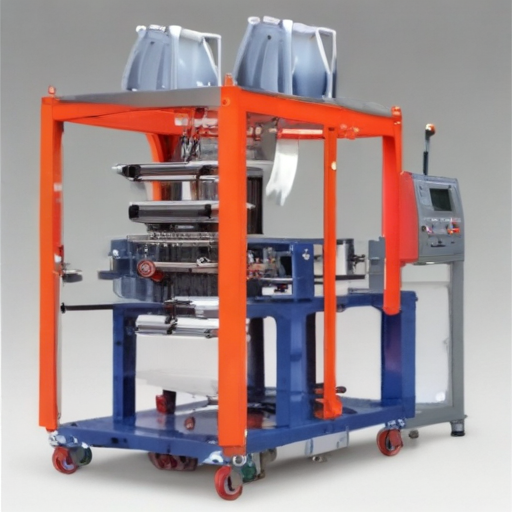
Top 10 FAQ with answer about specialized packaging machines for Buyer Sourcing from China
Certainly! Here’s a concise list of the top 10 frequently asked questions (FAQs) with answers about sourcing specialized packaging machines from China, tailored for buyers:
-
What types of specialized packaging machines can I source from China?
- Buyers can source a wide range including filling machines, sealing machines, labeling machines, wrapping machines, and vacuum packing machines.
-
How do I ensure the quality of packaging machines from Chinese suppliers?
- Verify certifications (CE, ISO), request samples, check customer reviews, and consider third-party inspections or factory audits.
-
Are Chinese packaging machines compatible with international standards?
- Yes, many Chinese manufacturers design their machines to comply with international standards. Always confirm compatibility with your specific needs.
-
What is the typical lead time for manufacturing and delivery?
- Lead times vary; typically, it’s 4-8 weeks for manufacturing and an additional 2-6 weeks for shipping. Confirm with the supplier for specific timelines.
-
How can I handle maintenance and spare parts for these machines?
- Choose suppliers who provide comprehensive after-sales service, including training, technical support, and readily available spare parts.
-
What should I check in the warranty terms offered by Chinese suppliers?
- Ensure the warranty covers parts and labor, and clarifies the duration and specific conditions under which services are provided.
-
How do I manage communication and potential language barriers?
- Opt for suppliers with proficient English-speaking staff and consider using translation services if needed. Clear, written agreements help mitigate misunderstandings.
-
What are the payment terms commonly accepted by Chinese suppliers?
- Commonly accepted terms include T/T (Telegraphic Transfer), L/C (Letter of Credit), and occasionally PayPal or Western Union for smaller transactions.
-
How can I verify the legitimacy of a packaging machine manufacturer in China?
- Conduct thorough research, check business licenses, verify through Alibaba or Made-in-China platforms, and ask for references from previous Western customers.
-
What import duties and regulations should I be aware of?
- Import duties vary by country. Consult with a logistics expert or customs broker to understand the specific duties, taxes, and regulations applicable to your region.
These FAQs help streamline the process of sourcing specialized packaging machines from China, ensuring buyers make informed decisions.

